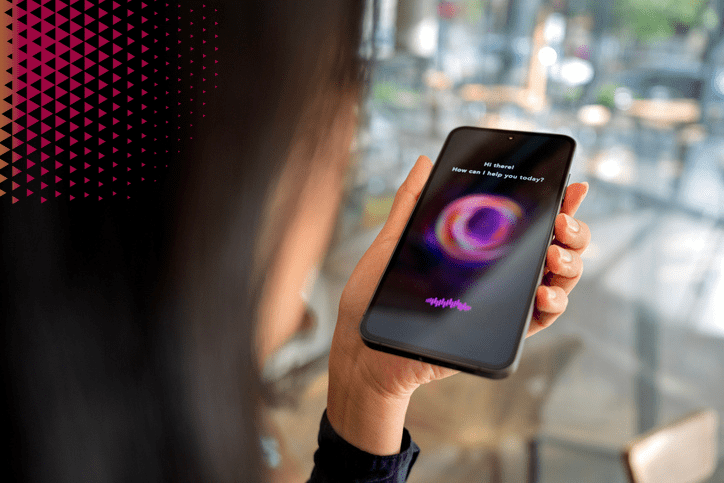Unified POS software: criteria for choosing a customer-centric POS system

With the rapid digitalization of the retail sector, the checkout experience plays a crucial role in customer satisfaction and smooth in-store operations. Adopting unified commerce makes selecting the right POS solution a strategic decision. It must fulfill various requirements: ease of use, security, interoperability, and scalability.
This article provides guidelines for evaluating and selecting POS software suited to the needs of modern commerce.
Choosing the right POS solution
Assessing the specific needs of the business
Before comparing available POS solutions, businesses must first analyze their specific needs:
- Transaction volumes;
- Number of points of sale;
- Types of products sold;
- Activated sales channels.
The desired customer experience should also guide the decision: speedy checkout, seamless returns, omnichannel payment management. Moreover, the tool must be user-friendly for the staff: it should have an intuitive interface, adequate training, and interoperability with existing systems.
Essential features to consider
POS software should seamlessly integrate with the existing ecosystem. In unified commerce, it’s best to choose a centralized system capable of synchronizing flows across all channels. This necessitates tool compatibility and the ability to handle:
- Self-checkout transactions;
- Mobile payments;
- Gift cards;
- Multicurrency transactions;
- Returns and refunds.
The Openbravo SCO self-checkout solution offers an intuitive interface designed for client autonomy. This ensures quick, assistance-free payments while fully integrating into the point of sale environment.
Security and reliability criteria
Transaction security standards
Payment security ensures the protection of the company’s revenue and maintains customer trust. The chosen POS software must comply with current standards, such as PCI DSS for card payments, along with practices like validation code encryption and fraud detection.
Emerging technologies like blockchain further enhance the traceability of banking operations by ensuring data integrity. Additionally, some systems incorporate customizable rules to adapt controls to store policies, such as ticket thresholds triggering manual validation or consistency checks between scanned items and totals.
Software reliability and customer service
Beyond technical performance, the reliability of a POS solution depends on regulatory compliance. In France, NF 525 certification is mandatory for POS software used by VAT-registered retailers, ensuring the unalterability, security, preservation, and archiving of transaction data. Responsive support is also crucial. A professional solution must offer competent and prompt customer service with personalized follow-up.
Orisha Commerce, a retail industry expert, is a reference in the unified POS solutions market. In 2024, Openbravo POS software was recognized in the Gartner® Market Guide for Unified Commerce Platforms Anchored by POS for Tier 2 Retailers. Discover our Openbravo POS solution.
Optimizing the customer experience at the point of sale
Integrating personalization tools to improve the service
Integrated POS software provides a smoother and personalized customer relationship. Staff can access a customer’s purchase history and preferences at checkout, enabling real-time recommendations and personalized offers. Personalization can also include checkout interfaces tailored to customer habits:
- Displaying the customer’s name on the checkout screen;
- Configurable languages;
- Email receipts;
- Choice of preferred payment method.
These small gestures, made possible by a centralized POS solution, help forge a lasting connection between the retailer and its clientele. The Openbravo POS software offers a unified checkout experience across all touchpoints. Conventional checkout, self-service via self-checkout, or assisted sales in mobility: explore the possibilities of our unified platform.

Mobile payment at the point of sale
Mobile payment revolutionizes in-store checkout: it eliminates queue lines and smoothens interactions. Mobile terminals connected to the POS software ensure that sales associates can finalize a purchase anywhere in the aisles. With over half of consumers expressing willingness to pay more for a personalized experience, assisted sales meet this demand for tailored service. Mobile checkout also helps relieve traditional checkout counters and increases staff availability.
The Openbravo Mobile POS solution aligns with this logic, accessible via a web browser. It enables store teams to identify customers, make personalized recommendations, and finalize sales transactions anywhere in the store. Discover how mobile payment integrates with Orisha Commerce!
The impact of POS software on customer loyalty
A smooth payment process enhances customer trust by minimizing irritants and improving the relationship with staff. To track these effects over time, it’s useful to cross-reference various indicators:
- Checkout data;
- Satisfaction indicators (NPS, reviews, surveys);
- Loyalty KPIs (purchase frequency, use of loyalty cards).
Evaluating performance and visibility of solutions
Comparing performance of different POS platforms
Payment processing time, capacity to handle peak activity, frequency of technical incidents, speed of updates—these criteria directly impact the daily operations of store teams. A high-performance solution must handle seamless transactions regardless of load and provide uninterrupted service even during network outages. Evaluating the system’s responsiveness during complex omnichannel transactions is also crucial. Retailers can use benchmarks, feedback, or in-store tests to compare promises to real-world performance.
The importance of consistency in unified commerce
A unified POS solution centralizes data and harmonizes business rules, providing customers with a continuous experience. Loyalty benefits, discounts, and preferences are retained regardless of whether they shop online, in-store, or via a self-service kiosk. To achieve this, the POS solution must offer a complete and integrated functional foundation. These features work together to simplify operations while ensuring a consistent experience.
Explore the features of our solution and streamline your retail operations.
- Mobile checkout;
- Real-time inventory management;
- Omnichannel order tracking;
- CRM and loyalty integration;
- Promotional and discount programs;
- Security and access control;
- Regulatory compliance;
- User-friendly interface;
- Integration with existing systems.
Choosing a POS solution is no longer just a technical decision; it is a key factor in shaping the customer experience. By unifying touchpoints, integrated solutions enhance commercial performance, operational fluidity, and team agility in stores. This centralized vision is now an asset in supporting retail’s omnichannel transformation.
Frequently asked questions
What criteria should be considered when choosing a POS solution?
Here are the 6 key considerations:
- The specific needs of the retailer;
- Solution features: omnichannel payment, returns management, interoperability;
- Legal compliance (NF 525 or LNE certification);
- Transaction security;
- Reliability of technical support;
- Impact on customer experience and loyalty.





